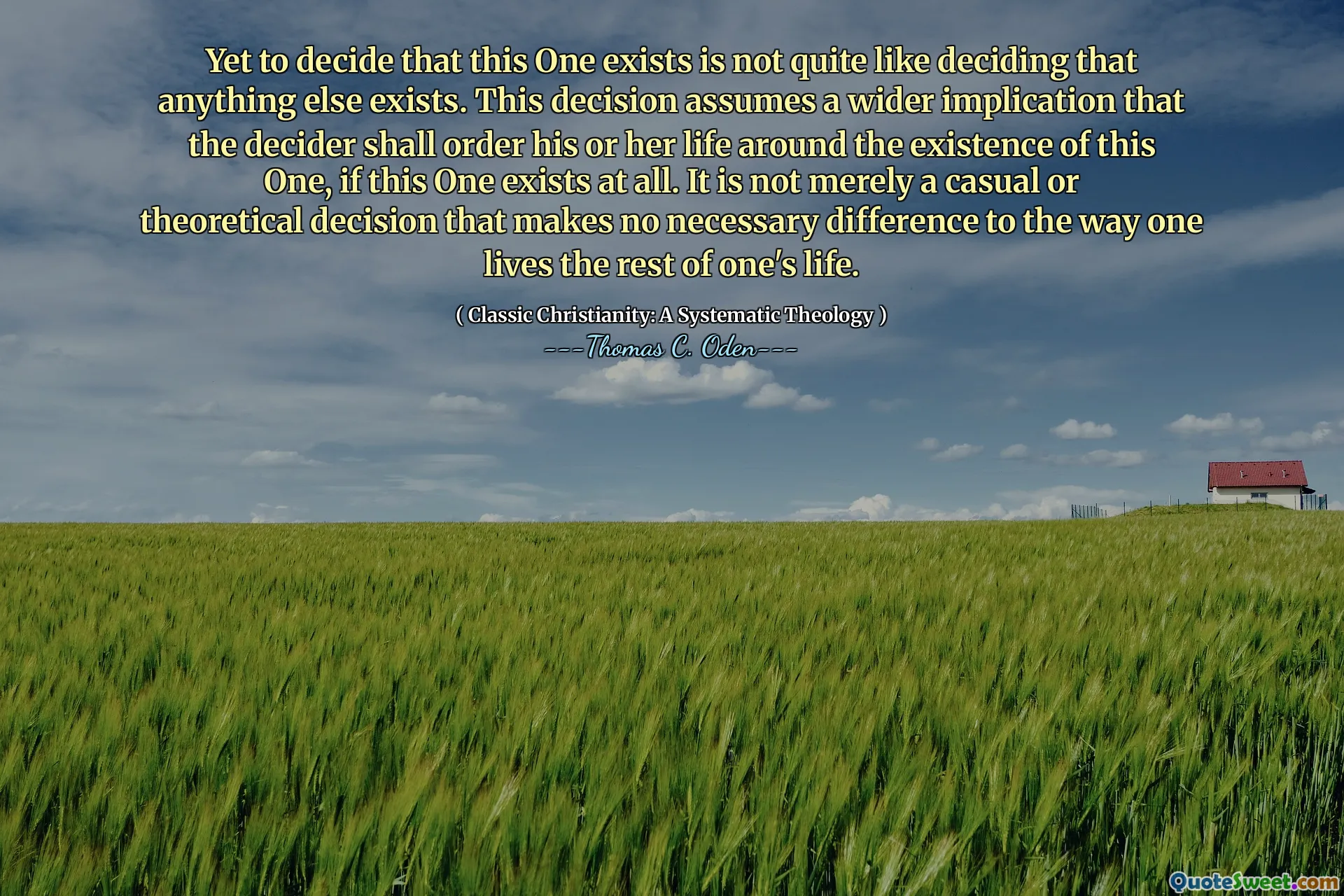
Yet to decide that this One exists is not quite like deciding that anything else exists. This decision assumes a wider implication that the decider shall order his or her life around the existence of this One, if this One exists at all. It is not merely a casual or theoretical decision that makes no necessary difference to the way one lives the rest of one's life.
This quote invites us to reflect on the profound implications of believing in the existence of a pivotal, potentially divine or fundamental 'One.' Unlike the simple acknowledgment that something exists, deciding to believe in this 'One' involves a committed choice that influences the entire framework of one's life. It emphasizes that belief isn't just a theoretical stance—it carries practical weight, requiring a shift in priorities, perspectives, and actions. Such an affirmation extends beyond casual reception; it demands a conscious decision that, if true, mandates reshaping our understanding of purpose, morality, and our place in the universe.
This idea resonates deeply because it highlights the responsibility that comes with acknowledging a higher or ultimate reality. It suggests that faith or belief is not merely an internal mental exercise but a call to align one's entire existence with that belief. For many, this is a daunting thought—accepting that one's entire way of life might need transformation if the 'One' is real. It underscores the seriousness with which beliefs must be considered, especially those that pertain to ultimate truths.
Furthermore, the quote touches on the concept that the decision to believe is a pivotal point in human life, shaping future choices and the ongoing narrative of personal existence. In this light, faith becomes an act of intentionality, an acknowledgment that our convictions are intertwined with our actions and worldview. It challenges individuals to examine the depth of their commitments and whether their lives genuinely reflect their core beliefs or merely surface-level opinions.
Ultimately, it asks us to consider the moral and existential weight of belief—underlining that some decisions extend beyond mere mental assent, influencing the very fabric of our lived experience and defining what we take to be meaningful and true.






